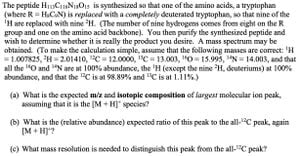Ukraine finds itself at the crossroads of diplomacy with the United States, as negotiations over a contentious resource agreement intensify under the leadership of former President Donald Trump. The agreement, which has come under scrutiny for its heavy demands, could reshape the financial relations between both nations.
Recently, reports detail how the proposed pact requires Ukraine to allocate half of its natural resource revenues — covering minerals, gas, and oil — directly to the U.S. A significant figure mentioned as part of the negotiations is $500 billion, which surpasses any previous agreement and is four times the value of the aid the U.S. has committed to Ukraine since the outbreak of the conflict with Russia. The negotiations have sparked concern within Ukraine as President Volodymyr Zelensky faces immense pressure from the Trump administration.
The new terms, surfaced from documents received by the New York Times, have ignited heated discussions within Ukrainian political circles. Despite previously rejecting the initial proposal due to unfavorable terms, recent updates suggest the conditions have become even more stringent. For example, the revenue generated from Ukraine's extensive natural resources is to be deposited directly with the U.S. until the $500 billion target is reached.
Interestingly, Trump's earlier public statements made it clear he envisions this payment as compensation for U.S. financial support, leading to speculation about the future of military and financial assistance for Ukraine. Amidst these discussions, Trump reiterated his commitment at the Conservative Political Action Conference, stating, "We will sign an agreement, or there will be many problems with them." This proclamation has left many analysts questioning what those “problems” might entail for Ukraine.
Adding to the complexity is the lack of security guarantees offered to Ukraine within this newly drafted proposal, which has previously been one of Zelensky’s key requirements. The absence of these guarantees leaves the nation vulnerable, fueling skepticism about the U.S.'s motives. Mike Waltz, the National Security Advisor, suggested, "A U.S. economic presence will serve as security for Kyiv," implying economic ties might replace traditional military guarantees.
From the Ukrainian perspective, the deal has been met with caution. Ruslan Stefanchuk, the Speaker of the Ukrainian Parliament, emphasized the need for sound security frameworks alongside discussions about economic collaboration. He noted, "We expect specific security guarantees from the U.S. for access to our resources," underscoring the importance of safety over resource revenue.
The proposed framework would significantly alter the nature of U.S.-Ukraine relations, shifting from support to dependence on substantial financial kicks from natural resources. This opens the door to larger strategic discussions about how Ukrainian wealth is managed and who benefits from it. The Ukrainian economy is heavily rooted in agriculture and industrial production, but as discussions shift to resource management, there are concerns about potential exploitation and overreach from the U.S.
Higher stakes are involved, with reports indicating revenues from Ukraine’s resources barely constituting 2.5% of the nation's budget for 2024. Therefore, the commitment to contribute the proposed sum raises alarms about economic stability and the prioritization of resource development. The natural resource sector may require durable investments and time before it can be fully profited from, which raises questions about the feasibility of such ambitious revenue-sharing attempts.
Despite increasing pressures from Trump’s administration to enforce compliance with the proposed terms, Ukraine is weighing its options with caution. Discussions are expected to culminate soon, with analysts pondering each side's leverage. Observers note the need for clarity from the Trump administration on how this proposed agreement would invest back in Ukraine, particularly concerning the reconstruction efforts post-conflict.
Internal critiques from Ukrainian officials also spotlight the current dynamics at play. Some sources reveal concerns about how the agreement might delay other potential investments and hinder economic growth initiatives within Ukraine. The new draft has sounded alarm bells over whether this arrangement types will undermine the national interest for short-term gains from resource allocation.
With Russia holding substantial areas of Ukrainian territory, the prospects of these negotiations’ success hinge on how well the U.S. and Ukraine can reframe their partnership to include stronger mutual security checks, clarifying terms around resources and economic stability. Failure to address these might cascade complications, not only for Ukraine’s recovery but also for broader geopolitical stability as both powers navigate this shifting terrain.
Overall, the balance of power is precariously resting on how this agreement is molded and implemented, and both parties are well aware of the inherent risks of power dynamics at play. Future discussions will certainly reveal whether the U.S. can leverage this resource-rich partnership beneficially for both parties or whether Ukraine can push back to secure its interests adequately.



